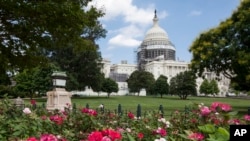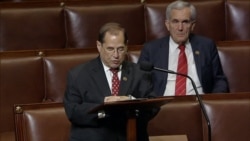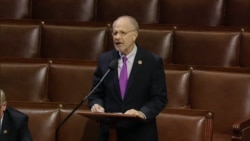The U.S. House of Representatives passed legislation Friday that would allow families of the victims of the September 11, 2001, terrorist attacks to sue the Saudi Arabian government for allegedly supporting terrorism, despite White House threats to veto the bill.
The Senate passed the Justice Against Sponsors of Terrorism Act (JASTA) in May despite opposition from Saudi Arabia, a key ally to the United States. Fifteen of the 19 airline hijackers involved in the attacks were Saudi nationals, but Riyadh has denied allegations it had any role in the attacks or supported organizations with ties to terrorist groups.
The White House's opposition to the legislation stems from concern it could weaken U.S. ties with Saudi Arabia, expose U.S. citizens overseas to legal risks and open the door to lawsuits against the U.S. from foreign countries. A White House veto can be overridden with votes from at least two-thirds of House and Senate members.
The bill, sponsored by Representative Jerrold Nadler of New York, has strong support from the victims’ families. Nadler has said he wants the legislation brought to a vote before the 15th anniversary of the attacks, which claimed the lives of nearly 3,000 people when terrorists hijacked and crashed commercial airliners into New York City's World Trade Center, the Pentagon just outside Washington, D.C., and a field in Shanksville, Pennsylvania.
Texas Congressman Ted Poe said the bill provides recourse which families of those who perished on 9/11 otherwise would not have.
"The legislation gives the victims' families access to the courts, to the rule of law. An we as a people should be more concerned about these victims of terror than about diplomatic niceties," Poe said.
The House vote comes two months after Congress released 28 declassified pages from a congressional report about suspected Saudi connections to the attacks. The papers did not significantly add to information that was publicly disclosed in other reports and documents.








